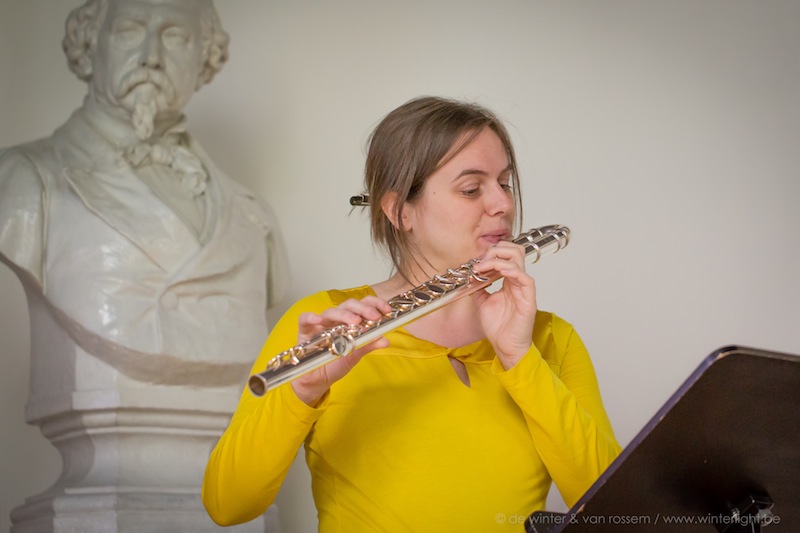Première "A Song Of Silver And Snow"
Première "A Song Of Silver And Snow"
Saturday, May 4th, the flutist Isabel Alonso Morillo previewed my composition "A Song of Silver and Snow" during a conference of Konrad Maquestieau.
The title refers to the Hokyo Zanmai Master Tozan "As a silver bowl filled with snow ..." the following verse is "like a heron hidden in the moonlight " - which is also the title of another composition for flute accompanied by piano, which was recently commissioned to me. The heron, silver, the snow and the moonlight : four recurring elements in Chinese poetry.
They have an homogeneous color, white, yet they are different. The union between equality and difference, between unity and multiple, a key point of Zen practice, and the underlying subject of all the music I compose.
In this composition, which lasts 22 minutes on average, made of seven parts, there is a constant balance in my ongoing communication between rhetoric, narrative, with phrases, culminating points on one side, and regular sounds on the other, without any notion of order or logic.

Twenty two minutes, for a piano accompaniment composition it is an extremely long time in the Western tradition, pieces for flute soloist of famous composers such as Claude Debussy and Edgard Varèse don’t last more than three minutes. Inspired by the shakuhachi tradition, I have allowed myself to write such a long piece... so there are parts of about a quarter of an hour long.
Time is actually necessary to have some room and let go with our thinking process and return to the direct intuition of the moment. We find also in the Christian Gregorian long pieces without accompaniment, and either there, there is not fear to be boring, to have nothing to tell ... just let the music take us back to the present moment.
The seven parts have a different character, a way of receiving them is a bit like listening to a story. The first one is rather agitated, but keeps coming back to a few simple notes, yet always different, using the whole range of possibilities of the flute. The third abandons any idea of a story, it is "pure sound." The fourth inspires great uncertainty, loneliness, but is also very lyrical.
After a more « explosive » part and a more neutral interlude, follows a long finale, which is almost half of the total composition, breathing quietly, integrating in the depth pure notes and the melody. But do not see there a story of a "spiritual quest" at all, I rather see it as a series of states, which can occur in any order, randomly.
The Netherlands Radio BOS (Boeddhistische Omroep Stichting(1)) released on Saturday, May 11th, an interview about this composition - among others - as well as a certain number of excerpts.
Luc De Winter
(1) Bouddhist Foundation Radiobroadcast






